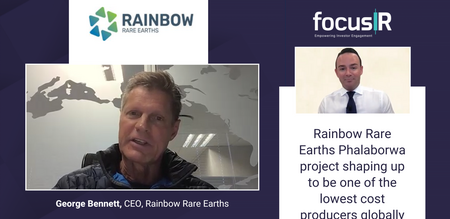(Repeats Wednesday story with no changes)
* AstraZeneca forecasts show variables in drug modelling
* $45 bln sales prediction widely seen as over-optimistic
By Ben Hirschler
LONDON, May 7 (Reuters) - Ten-year sales forecasts fromAstraZeneca - a central plank of its defence against a$106 billion bid approach from Pfizer - underscore howvaluing drugs is an art as well as a science.
While imponderables exist in any corporate valuation,pharmaceuticals are especially tricky, given the hazards of drugdevelopment and the long timelines of an industry where ittypically takes 10 to 15 years to bring a new product to market.
AstraZeneca's prediction of sales above $45 billion by 2023was widely seen as over-optimistic by industry analysts who havea more conservative view on many of the myriad factors that feedinto modelling future drug sales.
One thing is certain: most experimental drugs fail.
The average new drug has just a 6 percent chance of makingit to market when it enters initial Phase I testing in humans,according to Thomson Reuters CMR International, whichspecialises in measuring pharmaceutical R&D performance.
This rises to 69 percent by the time a new medicine reachesfinal Phase III clinical trials, and 90 percent once it issubmitted for regulatory approval.
"There will be things in our pipeline that won't work -that's par for the course," Briggs Morrison, AstraZeneca'sglobal head of medicines development, said on Wednesday.
Nonetheless, Morrison, who worked for Pfizer until 2012,believes his colleagues at AstraZeneca have honed the art ofpredicting future sales by blending the factors behind a newdrug's commercial success.
The first pass involves evaluating the technical aspects ofwhether a medicine actually works, followed by judging whetherwary regulators are likely to give it a green light, and thenfinally assessing its likely market share and pricing.
Given the many variables and the risk of over-promising andunder-delivering, most drug companies prefer not to makelong-term sales forecasts in normal times.
But these are not normal times for AstraZeneca, and it hopesthat by sharing key parts of its internal Long Range Plan,prepared for the board each year, it can prove it is worth a lotmore than the 50 pounds per share offered by Pfizer.
MOLECULAR ROULETTE
For investors, pharmaceutical investment remains to a largedegree a game of molecular roulette.
Skimming through a 44-slide presentation on the newforecasts this week, AstraZeneca Chief Executive Pascal Soriotacknowledged the uncertainties but argued his group had one ofthe most compelling and visible pipelines in the industry.
He compared his forecasts to those made by Genentech beforeit was acquired by Roche in 2009. In that case, thenumbers were achieved, but the sales did not all come from theexpected products.
Overall, AstraZeneca believes its drug pipeline has a 36percent chance of success, with potential peak annual sales of$63 billion translating to $23 billion on a risk-adjusted basis.
But the success rate varies hugely from product to product.
Alzheimer's drug AZD3293, which is about to enter Phase IIItesting and could in theory have annual sales of $5 billion, hasa mere 9 percent probability of success, while the Phase IIIinhaled lung drug PT003 has a better than two-thirds chance.
Competitors, too, can skew prospects. AstraZeneca'sbenralizumab for severe asthma, for example, faces a rivalbiotech drug from GlaxoSmithKline, and clinical trialsfor both will ultimately determine if it is a hit or a miss.
Pricing is another major uncertainty, especially inspecialty medicines where prices have gone through the roof inrecent years, sparking a backlash in areas like hepatitis C.
Morrison said AstraZeneca's forecasts assumed more pricingpressure over time, but he acknowledged there was a risk.
"It's a problem - let's be candid," he said. "You needcreative ways of pricing that society will feel offer fairvalue."
That is relevant in the hot field of cancer medicine, whereAstraZeneca is chasing Bristol-Myers Squibb, Merck & Co and Roche in the emerging field of immuno-oncology,which involves using drugs to boost the body's immune system.
AstraZeneca said it broadly agreed with forecasts thatimmuno-oncology could be a $28-35 billion a year market - butthose numbers assume no dislocation in the current market thatprices some cancer drugs at more than $100,000 per patient.
Overall, AstraZeneca expects the pipeline to make up a thirdof sales by 2023, with the balance coming from existing drugs,where market expectations are more solid but still far fromcertain.
The company's 2023 forecast for sales of $3.5 billion ofheart drug Brilinta, for example, is far higher than the $1.3billion consensus forecast for 2018 sales - a big gap thatleaves many analysts scratching their heads. (Editing by Will Waterman)




